第140章 CHAPTER XXXV. JOHANNES MULLER.(4)
"It is true, I have removed Archduke Charles from his command, for his popularity with the army and people is very great, and would have become dangerous to the emperor. We must conquer through tools, and not through heroes; the latter are very unpleasant to deal with, for they do not gratefully receive their reward as a favor, but they impudently claim and take it as a right. The imperial throne must be surrounded by heroes, but these heroes must never eclipse the imperial throne. Pardon this note to your chapter, and proceed."
"The heroes of the sword are cast aside," continued Johannes Muller, "but neither the heroes of thought nor the heroes of literature are spared. The government tries to disgrace and insult literature, because it is unable to assassinate it entirely; it drags literature into the caves of unworthy censors, and mutilates its most beautiful limbs and destroys the most magnificent splendor of its ideas. The government is AFRAID of the mind; hence it desires to kill IT. A government, however, may commit many mistakes, but it never ought to show that it is afraid, fear exposing it to ridicule. And if we ought not to weep over the persecutions which the apprehensions of the government have caused to be instituted against literature, we ought to laugh at them. Whole volumes of the most sublime works of Gibbon, Robertson, Hume, and other great historians have been prohibited; and there is not one of our German poets--neither Goethe, nor Schiller, nor Herder, nor Wieland, nor Lessing, nor Jean Paul--whose works are not ostracized in German Austria. Fear and a bad conscience scent everywhere allusions, references, and hints.
Hence history is banished from the stage; for the history of the past constantly points with a menacing finger at the sore spots of the present. Shakespeare's 'King Lear' has been prohibited, because the public might believe princes would lose their heads if weighed down by misfortunes. 'Hamlet,' 'Richard the Third,' and 'Macbeth' must not be performed, because people might get accustomed to the dethronement and assassination of emperors and kings. Schiller's 'Mary Stuart' is looked upon as an allusion to Marie Antoinette;